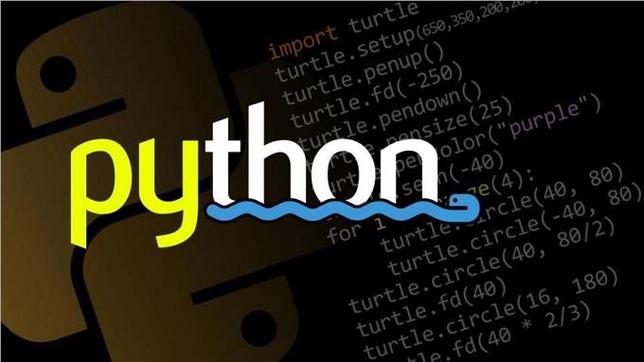🧑 博主简介:阿里巴巴嵌入式技术专家,深耕嵌入式+人工智能领域,具备多年的嵌入式硬件产品研发管理经验。
📒 博客介绍:分享嵌入式开发领域的相关知识、经验、思考和感悟,欢迎关注。提供嵌入式方向的学习指导、简历面试辅导、技术架构设计优化、开发外包等服务,有需要可加文末联系方式联系。
💬 博主粉丝群介绍:① 群内高中生、本科生、研究生、博士生遍布,可互相学习,交流困惑。② 热榜top10的常客也在群里,也有数不清的万粉大佬,可以交流写作技巧,上榜经验,涨粉秘籍。③ 群内也有职场精英,大厂大佬,可交流技术、面试、找工作的经验。④ 进群免费赠送写作秘籍一份,助你由写作小白晋升为创作大佬。⑤ 进群赠送CSDN评论防封脚本,送真活跃粉丝,助你提升文章热度。有兴趣的加文末联系方式,备注自己的CSDN昵称,拉你进群,互相学习共同进步。
解决Python报错:OSError: [Errno 28] No space left on device

问题背景
OSError: [Errno 28] No space left on device 是 Python 内置异常的一部分,它在尝试写入数据时设备或磁盘空间已满时发生。具体的错误信息 OSError: [Errno 28] No space left on device 表示操作系统返回错误编号 28,表示没有足够的磁盘空间来完成操作。
当你遇到这个错误时,通常可以通过删除或压缩不必要的文件、增加磁盘空间或将数据写入其他设备来解决问题。以下是一些常见的解决方案和示例代码来处理 OSError: [Errno 28] No space left on device 错误。
解决方案
1. 检查可用磁盘空间
在执行写入操作之前,检查设备或磁盘的可用空间,以确保有足够的空间。
import shutil
total, used, free = shutil.disk_usage("/")
print("Total disk space:", total // (2**30), "GB")
print("Used disk space:", used // (2**30), "GB")
print("Free disk space:", free // (2**30), "GB")
# 检查是否有至少 100MB 的可用空间
if free < 100 * 1024 * 1024:
print("Not enough disk space.")
else:
# 执行写入操作
with open('large_file.txt', 'w') as file:
file.write('0' * 100000000) # 写入100MB数据
2. 删除不必要的文件
删除或清理不必要的文件和目录以释放磁盘空间。
import os
# 要删除的文件和目录列表
files_to_delete = ['old_file.txt', 'unnecessary_directory']
for file_path in files_to_delete:
try:
if os.path.isfile(file_path):
os.remove(file_path)
print(f"Deleted file: {file_path}")
elif os.path.isdir(file_path):
os.rmdir(file_path)
print(f"Deleted directory: {file_path}")
except Exception as e:
print(f"Error deleting {file_path}: {e}")
3. 压缩文件
将一些不常使用但重要的文件压缩,以节省磁盘空间。
import zipfile
file_to_compress = 'large_file.txt'
compressed_file = 'large_file.zip'
with zipfile.ZipFile(compressed_file, 'w') as zipf:
zipf.write(file_to_compress)
print(f"Compressed '{file_to_compress}' into '{compressed_file}'")
4. 捕获并处理异常
使用 try-except 块捕获 OSError 异常,并根据需要处理该异常。
file_path = 'large_file.txt'
try:
with open(file_path, 'w') as file:
file.write('0' * 100000000) # 写入100MB数据
except OSError as e:
if e.errno == 28:
print(f"Error: {e}. No space left on device.")
else:
print(f"Unexpected error: {e}")
5. 将数据写入其他设备或磁盘
如果当前设备或磁盘空间不足,可以考虑将数据写入其他设备或磁盘。
import shutil
source_path = 'source_file.txt'
destination_path = '/path/to/other_device/destination_file.txt'
try:
shutil.copyfile(source_path, destination_path)
print(f"Copied '{source_path}' to '{destination_path}'")
except OSError as e:
if e.errno == 28:
print(f"Error: {e}. No space left on device.")
else:
print(f"Unexpected error: {e}")
示例与应用
我们来通过几个完整的示例展示解决方案。
示例 1:检查可用磁盘空间
import shutil
total, used, free = shutil.disk_usage("/")
print("Total disk space:", total // (2**30), "GB")
print("Used disk space:", used // (2**30), "GB")
print("Free disk space:", free // (2**30), "GB")
# 检查是否有至少 100MB 的可用空间
if free < 100 * 1024 * 1024:
print("Not enough disk space.")
else:
# 执行写入操作
with open('large_file.txt', 'w') as file:
file.write('0' * 100000000) # 写入100MB数据
示例 2:删除不必要的文件
import os
# 要删除的文件和目录列表
files_to_delete = ['old_file.txt', 'unnecessary_directory']
for file_path in files_to_delete:
try:
if os.path.isfile(file_path):
os.remove(file_path)
print(f"Deleted file: {file_path}")
elif os.path.isdir(file_path):
os.rmdir(file_path)
print(f"Deleted directory: {file_path}")
except Exception as e:
print(f"Error deleting {file_path}: {e}")
示例 3:压缩文件
import zipfile
file_to_compress = 'large_file.txt'
compressed_file = 'large_file.zip'
with zipfile.ZipFile(compressed_file, 'w') as zipf:
zipf.write(file_to_compress)
print(f"Compressed '{file_to_compress}' into '{compressed_file}'")
示例 4:捕获并处理异常
file_path = 'large_file.txt'
try:
with open(file_path, 'w') as file:
file.write('0' * 100000000) # 写入100MB数据
except OSError as e:
if e.errno == 28:
print(f"Error: {e}. No space left on device.")
else:
print(f"Unexpected error: {e}")
示例 5:将数据写入其他设备或磁盘
import shutil
source_path = 'source_file.txt'
destination_path = '/path/to/other_device/destination_file.txt'
try:
shutil.copyfile(source_path, destination_path)
print(f"Copied '{source_path}' to '{destination_path}'")
except OSError as e:
if e.errno == 28:
print(f"Error: {e}. No space left on device.")
else:
print(f"Unexpected error: {e}")
总结
OSError: [Errno 28] No space left on device 错误表明设备或磁盘空间已满。通过检查可用磁盘空间、删除不必要的文件、压缩文件、捕获并处理异常以及将数据写入其他设备或磁盘,我们可以有效避免并解决此类错误。
希望本文对你理解和解决 OSError: [Errno 28] No space left on device 错误有所帮助。如果你有任何问题或建议,欢迎在评论区留言讨论!
























 350
350

 被折叠的 条评论
为什么被折叠?
被折叠的 条评论
为什么被折叠?










